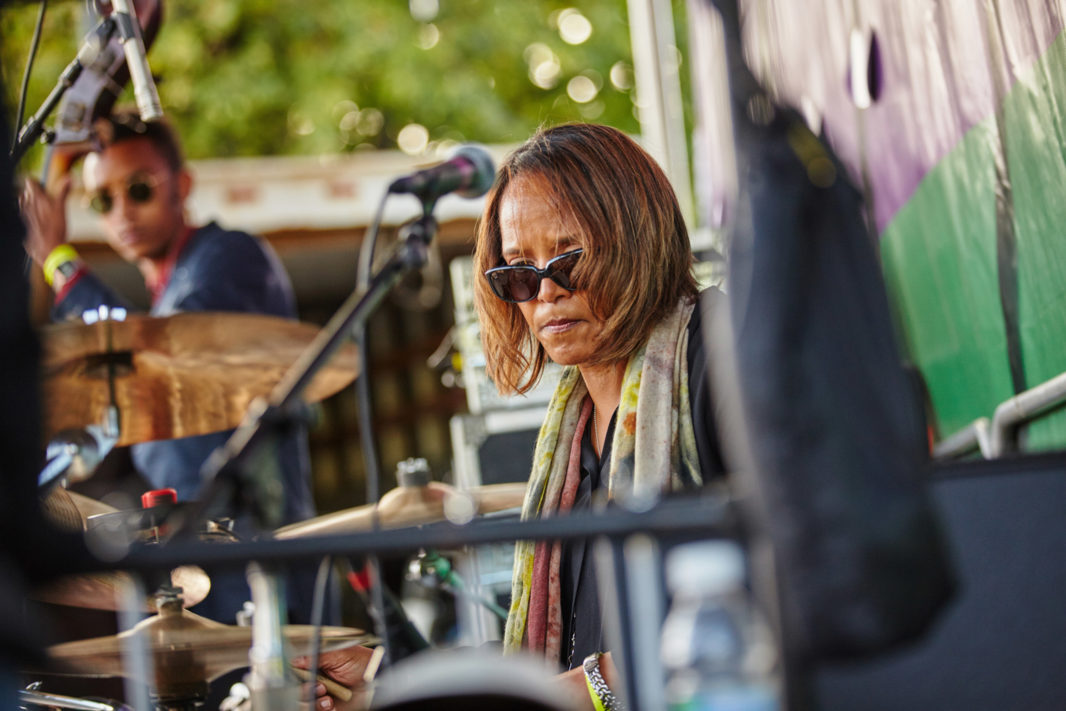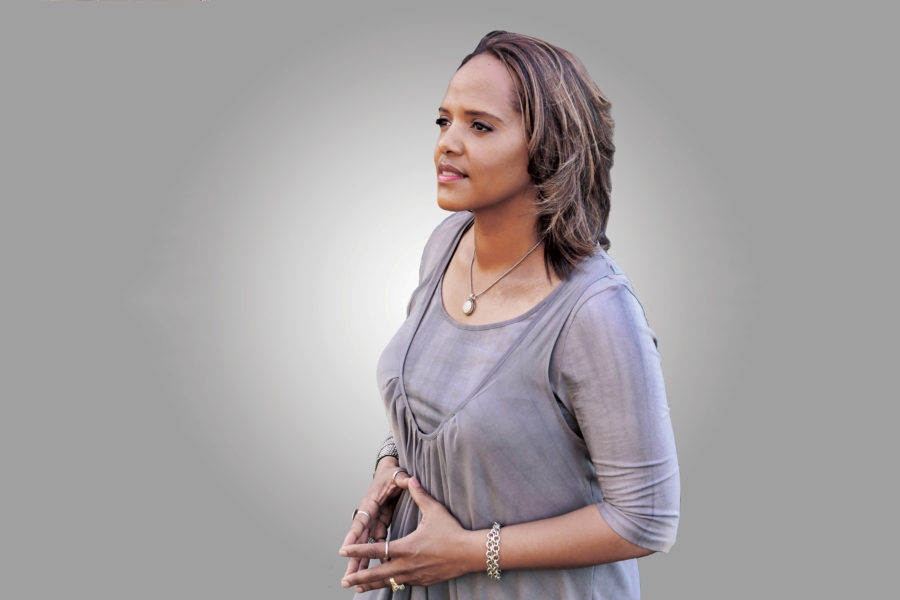It’s no secret that jazz holds a significant position in African-American history and American cultural life, overall.
“Jazz’s birth as an African-American art form came into being as a way of expressing one’s self as a whole and authentic person,” says Terri Lyne Carrington. “Early practitioners were doing something their oppressors could not do.”
Yet, while the music genre has always been culturally diverse, there is very little gender equity in the jazz world. Jazz is still predominately peopled by male musicians, most of the cannon is written by men, and the issues young, female jazz artists face aren’t generally issues for young, male artists.
These elements are what makes Carrington, as a successful, female jazz drummer, a rare bird. So, she’s out to change that equation.
Carrington serves as the Zildjian Chair in Performance for the Berklee Global Jazz Institute and is artistic director of Berklee’s Summer Jazz Workshop. She’s also a highly successful drummer, composer, educator, producer, band leader, activist and entrepreneur. She is the first woman to have won a Grammy Award for Best Jazz Instrumental Album; plus, she’s won two other Grammys. As a drummer, Carrington has traveled the world, playing with greats like Stan Getz, Dizzy Gillespie, Herbie Hancock, Al Jarreau, Wayne Shorter and Clark Terry, and she was the drummer for The Arsenio Hall Show.
Carrington’s performance career started young.
“When I was 11 years old, I was on a TV show with Buddy Rich,” she says. “Someone asked him how he knew I was a good drummer. He said, ‘Well, I listen for how she can swing the band, and whether she has good time, good feel, and good articulation.’ Joe Garagiola, who was the host, said, ‘What does that mean, articulation?’ Buddy tried to explain what it meant, then he just said, ‘She sounds like she knows what she’s doing.’”
Carrington’s talent is her own, but it was nurtured in a home filled with music.
Her mother played piano for fun, and her father and grandfather were both professional jazz drummers, with her dad also playing sax.
Legendary jazz artists regularly visited the family’s Boston area home, providing musical, social and political examples, adding to her rich family life.
Jazz’s influence on music around the world is profound, and jazz itself is a creative, sophisticated, ground-breaking amalgamation of far-flung cultural influences and was at the forefront of the Civil Rights movement.
Carrington’s knowledge of this history and her extensive participation as a practitioner add to her ability to conceptualize where changes need to be made, and how to continue to make them.
Ultimately, Carrington is a leader, making music and creating opportunity for others in equal measure. Like Susan B. Anthony advocated well over 100 years ago, Carrington is on a mission to “organize, agitate, educate.”

Dave Green
Terri Lyne Carrington performs at the Berklee Beantown Jazz Festival
Last fall, Carrington launched The Institute of Jazz and Gender at Berklee College of Music. As founder and artistic director, she guides the organization in celebrating women’s contributions to the field, and she strives for equitable conditions and a lasting cultural gender shift in jazz. In a logical and ambitious parallel, the institute hopes to contribute to the wider struggle for gender justice.
Carrington, constructed the institute after gathering input from each Berklee department, from women in the field and the Women in Jazz collective — a student-led organization. Based on the information she gathered, coupled with her own, decades-long experience, she was motivated to formalize her efforts to make gender-equity change.
Right from its beginning, in October 2018, the institute has produced a well thought out and articulated plan of action. Based at Berklee, the institute welcomes students of all genders as they work towards diversity. It addresses inequities at the college and beyond through curriculum, recruitment, residencies, performances, research and community engagement.
The timing of the #MeToo and the #TimesUp movements, Carrington believes, is helpful in regard to the initiation of the Institute.
Clearly Carrington is passionate about “women’s issues,” but, one suspects, coming up in the jazz world, she was treated simply as an artist, not a girl drummer. And, while her strong personality reflects that — she isn’t easily intimidated — she wants to make sure all females and members of other under-represented groups are able to enter the space creatively in all of its many aspects.
Berklee’s full organizational and theoretical support, with the world’s most distinguished jazz faculty at its core, is a signal that the field believes there’s an issue to be addressed and that they are committed to making change.
“The jazz narrative has traditionally been that the men play the music and the women sing it,” says Carrington. “We’re trying to help women take ownership and change that narrative. They have a right to take space and be creative and expressive without worrying about gender bias. Maybe some still think jazz is men’s work, mostly from the older generation and some younger, too, but I’m not really interested in their thinking.”



 4 min read
4 min read


